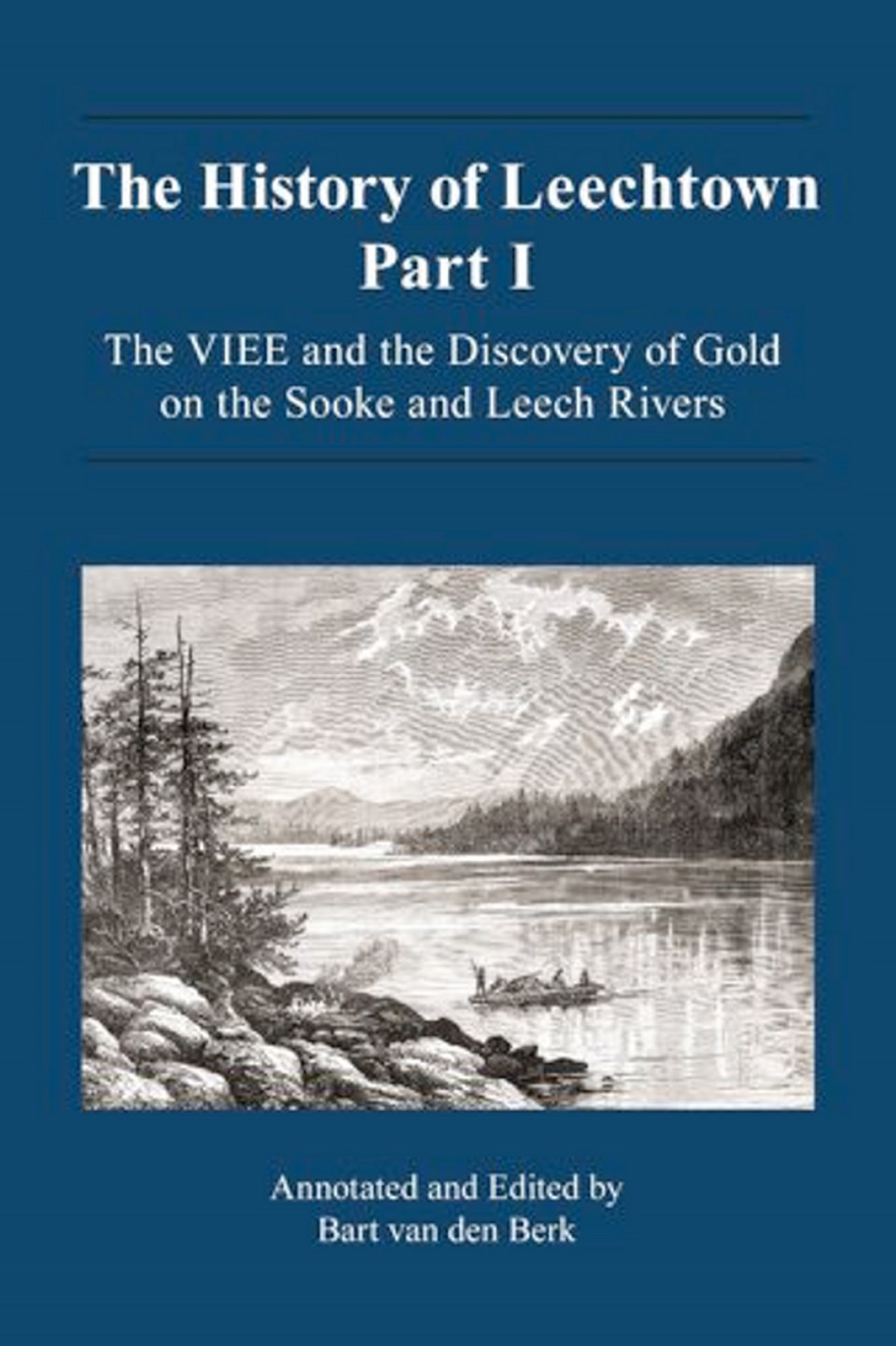The History of Leechtown Part I:
The VIEE and the Discovery of Gold on the Sooke and Leech Rivers
By Bart van den Berk
VandenBerk-Books, 279 pages, $22
With the ease of self-publishing these days, we are seeing many books that in past years would never have made it into print. This is a fine example.
The History of Leechtown is a comprehensive look at the area up to 1864, when gold was discovered on the Sooke and Leech rivers by members of an exploration group.
Author Bart van den Berk says the person who found the gold was John Foley, not Peter Leech, even though Leech received much of the credit for many years.
Leech also was given credit for the term “the gold will speak for itself,” but van den Berk shows that the words were actually written by expedition member Robert Brown.
The Leechtown gold rush was a small one, tiny in comparison to the rushes on the Fraser River, in the Cariboo, and in the Klondike, each of which had a tremendous impact on business in Victoria. Our fair city served as a staging point for all three of the big rushes.
Leechtown stands out, however, since it was a rush on Vancouver Island, and relatively close to Victoria. That makes in our own.
In The History of Leechtown, van den Berk has brought together a wide variety of journals and accounts, merging them and presenting them in strictly chronological order. The reader is able to follow the actions of the group’s members, day by day.
Van den Berk drew much of the information here from files at the B.C. Archives, as well as news reports and letters published in the British Colonist in 1864. These documents represented history being written on the fly.
A century and a half after the events covered in this book, they seem as current as they were then.
This book has been a labour of love for the author, who says he has enormous respect for the early pioneers, miners and explorers.
It shows. Compiling a book such as this takes an extraordinary amount of time — and no matter how many copies of this book are sold, van den Berk will not be compensated for all of his effort.
That is why self-publishing makes so much sense, in a case like this. A conventional publisher would have considered the numbers and opted against a project such as this. In that case, readers interested in local history would have lost a chance to learn more — much more than ever before — about the expedition that found gold in the Leechtown area.
This book will be an invaluable reference for years to come; anyone else researching Leechtown and the gold rush there would be advised to start with The History of Leechtown.
To borrow a Leechtown phrase: Van den Berk’s work speaks for itself.
The reviewer is the editor-in-chief of the Times Colonist.



